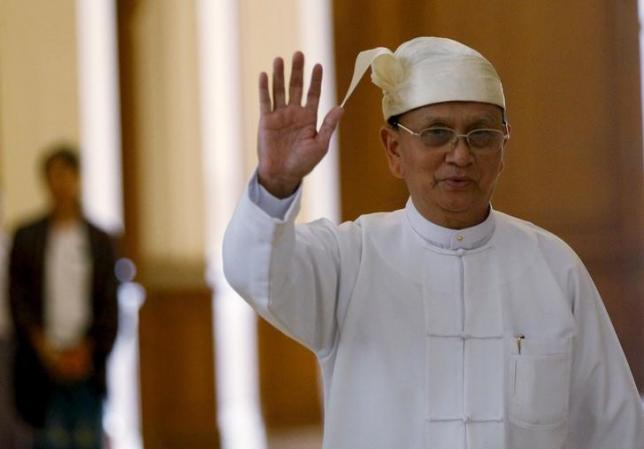Myanmar lifts state of emergency in conflict-torn Rakhine state
YANGON: Myanmar President Thein Sein, in a surprise move hours before leaving office, lifted a state of emergency in the restive western state of Rakhine, imposed after clashes between Buddhists and minority Rohingya Muslims in 2012.
Thein Sein announced the move in state media on Tuesday, a day before a president from Aung San Suu Kyi's National League for Democracy (NLD) will be sworn in at an official handover, after the NLD won the Nov. 8 election by a landslide.
While there have been no major clashes in Rakhine in the last two years, most of Myanmar's 1.1 million Rohingya Muslims remain stateless and live in apartheid-like conditions. They are denied citizenship and have long complained of state-sanctioned discrimination.
"It is found from the report by the Rakhine state government that the situation in Rakhine state can no longer pose dangers to the lives and property of the people," said the ordinance signed by Thein Sein.
Myanmar has denied discriminating against the group. It does not recognise the Rohingya as an ethnic minority and instead classifies them as Bengalis. Most Rohingya reject the term and many families have lived in Rakhine for generations.
Rohingya were denied participation - both as voters and as candidates - in the November vote. Before the elections, religious tensions were high, with the NLD deciding not to field a single Muslim candidate on its lists of more than 1,100 hopefuls.
The Rohingya are widely disliked in Myanmar, where they are seen as illegal immigrants from Bangladesh - including by some in Suu Kyi's party. She risks haemorrhaging support by taking up their cause.
Tensions are rising between the NLD and the Rakhine-based Arakan National Party (ANP), one of Myanmar's most vocal ethnic parties. ANP lawmakers walked out of the regional parliament on Monday wearing black stickers on their jackets, because the NLD denied them the position of the chief minister of the state.
Still, lack of fighting means that some 25,000 Rohingya Muslims have left camps for displaced people and returned to the communities, the United Nations said last week, with the number of people in camps down to around 120,000 from 145,000.






